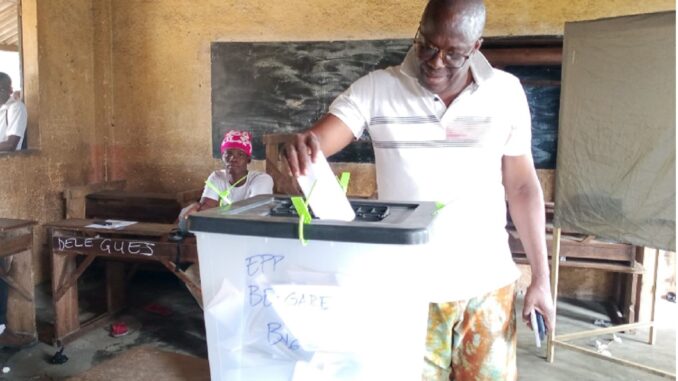
Togolese citizens headed to the polls on Thursday, July 17, for municipal elections widely perceived as a litmus test for President Faure Gnassingbé’s grip on power following a controversial constitutional reform.
The reform, which allows Gnassingbé—already in office since 2005—to remain president of the powerful Council of Ministers indefinitely, has triggered rare but deadly protests. Amid heightened security in Lomé and a backdrop of fear and repression, many polling stations in the capital remained largely empty, highlighting growing voter apathy and public disillusionment.
The elections, the first since the constitutional changes, were overshadowed by calls for a boycott from diaspora activists and civil society groups, who criticised the credibility of the electoral process. A heavy presence of police and military personnel at strategic points across Lomé deepened the sense of unease among residents. With dissent suppressed and democratic space shrinking, Thursday’s vote reflected not a celebration of civic engagement but a population increasingly wary of a political system perceived as unresponsive and coercive.
